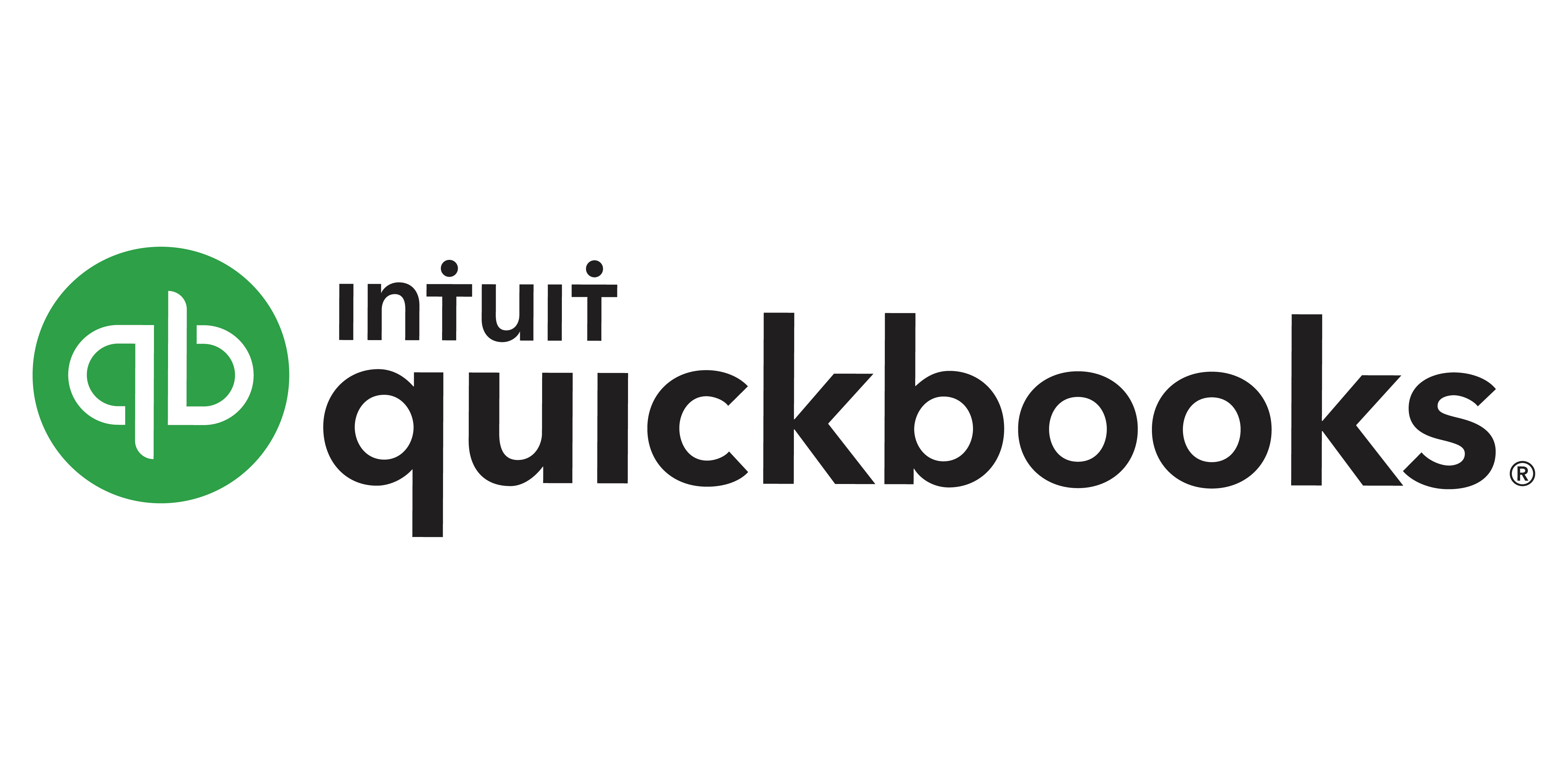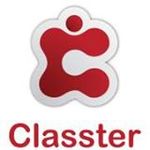Yes, most Alumni Management Software may be accessible from different devices and platforms. This means that customers may access the program from their smartphones, tablets, laptops, and desktops, and it is compatible with a variety of operating systems, including iOS, Android, and Windows. This gives alumni the convenience and freedom to stay connected and involved with their alma mater regardless of the device or platform they use.
List of 20 Best Alumni Management Software
MemberLeap is a membership management software designed to simplify operations for associations and non-profits. It offers a range of features including event registration, website creation, and member engagement, all within one platform. With Member...Read More MemberLeap
e2s Connect is a cloud-based fundraising solution designed specifically for higher education institutions. Our Alumni CRM provides a comprehensive view of alumni activities, enabling a deeper understanding of this crucial group. With e2s Connect, eff...Read More e2s Connect
AlumnForce is software solution that enables seamless connectivity and empowerment for your alumni community. With features such as simplified event management, mentorship programs, and career opportunities, it helps in building a thriving network. C...Read More AlumnForce
AlmaBay is solution for deepening your connection with your alma mater. Our user-friendly platform makes it a breeze to locate your institute and keep in touch with your fellow alumni. Experience the full potential of your alumni network with AlmaBay...Read More AlmaBay
Vaave is a alumni database management system that offers customizable member portals and seamless contact management. With its automatic contact information updates, keeping your alumni directory current is effortless. Simplify your alumni management...Read More Vaave
EverTrue is a donor management software that transforms fundraising efforts by fostering truly meaningful relationships with donors. Powered by AI, automation, and data analysis, EverTrue streamlines the fundraising process and enhances the donor exp...Read More EverTrue
Hivebrite is an innovative community engagement platform that allows organizations to build and manage dynamic online communities and foster meaningful connections. Its flexible features can be personalized to meet the unique needs of businesses, sch...Read More Hivebrite
A Alumni Portal, a custom-built platform for A esteemed graduates to stay connected, network, and stay up-to-date on all things related to A school. With this exclusive platform, alumni have access to a plethora of valuable resAces, news, and opportu...Read More Alumni Portal
Regpack is a software solution for your swim school management needs. Our comprehensive system automates tasks and streamlines the registration process, giving you the tools to effectively analyze and interpret your schools data. Take the hassle out...Read More Regpack
CampusGroups is a widely used campus experience management platform with over 260 clients globally. This comprehensive solution is designed to enhance student engagement and support collaborative community efforts. Customizable features cater to the...Read More CampusGroups
Join It is a membership management solution for NPOs. Say goodbye to manual administrative tasks and hello to streamlined processes. Our platform seamlessly integrates with multiple systems, offering features like association membership, automated re...Read More Join It
QuickBooks Online, the premier accounting software for entrepreneurs and business owners. Streamline your financial management with its intuitive interface, top-notch security measures, and cutting-edge features such as Online bank connectivity and W...Read More QuickBooks Online
Fourthambit is alumni and community portal that operates on the cloud. It serves as a central platform for universities and colleges to connect with their alumni, students, and faculty members. Harness the potential of advanced community management t...Read More Fourthambit
WildApricot is a cloud-based platform that offers a one-stop solution for organizations to easily manage their membership needs. It simplifies tasks such as creating websites, processing payments, registering for events, and communicating with member...Read More WildApricot
HelloAsso is a versatile platform that streamlines fundraising and event management for non-profits. Its user-friendly tools allow organizations to create impactful campaigns, monitor donations, and engage with their community. With improved efficien...Read More HelloAsso
Raklet, the premier membership management solution designed to streamline community engagement and simplify administrative tasks. Trusted by over 1,000 organizations, Raklet offers a comprehensive suite of features, including event planning, email ma...Read More Raklet
Classter - an all-inclusive platform that revolutionizes IT infrastructure management for educational institutions. With Classter, your school can seamlessly integrate admissions, alumni management, SIS, SMS, LMS, ERP, and CRM, streamlining processes...Read More Classter
Ellucian Education ERP is a tailor-made solution for higher education institutions. This all-inclusive platform automates admissions, streamlines student access, improves record management, increases faculty engagement, and tracks key operational met...Read More Ellucian Education ERP
VobeSoft - the premier no-code software solution for your business. Design a dynamic CRM or custom application effortlessly, no coding skills necessary. Select from our high-performing templates or create your own solution from the ground up. With Vo...Read More VobeSoft
Paradiso LMS is a learning management system, featuring a user-friendly interface and a wide range of capabilities. Boasting effortless compatibility with over 100 software options, including popular CRMs and CMSs, it is the ideal solution for busine...Read More Paradiso LMS
Learn More About Alumni Management Software
- What Is Alumni Management Software?
- What Are the Recent Trends in Alumni Management Software?
- Benefits of Using Alumni Management Software
- Important Factors to Consider While Purchasing Alumni Management Software?
- What Are the Key Features to Look for in Alumni Management Software?
- Why Do Businesses Need Alumni Management Software?
- How Much Time Is Required to Implement Alumni Management Software?
- What Is the Level of Customization Available in Alumni Management Software?
- Which Industries Can Benefit the Most from Alumni Management Software?
- Conclusion
What Is Alumni Management Software?
Alumni Management Software is an essential tool for educational institutions, non-profit organizations, and enterprises to successfully manage alumni connections. These software solutions provide a consolidated platform for storing and managing alumni information, monitoring involvement and donations, and allowing communication between alumni and the school.
One of the most important characteristics of Alumni Management Software is its sophisticated database management system, which allows administrators to store and update contact information, educational and employment records, and other pertinent alumni data. This simplifies the process of keeping accurate and up-to-date information and allows for easy tracking of alumni development and achievements.
Furthermore, alumni management software provides a variety of interaction capabilities, like event management, email marketing, and social media integration, to mention a few. These capabilities allow universities to keep alumni connected and involved by delivering frequent information, hosting alumni events, and creating an online community where alumni may network and discuss opportunities.
In addition to alumni involvement, these software systems provide financial management features that enable institutions to track donations and pledges, conduct donation requests, and produce fundraising reports. This function is especially valuable to non-profits and educational institutions that rely significantly on alumni contributions to fund their operations and programs.
Another remarkable aspect of Alumni Management Software is its capacity to produce informative reports using alumni data and interaction. These studies may help institutions assess the performance of their alumni relations and suggest areas for development, eventually assisting them in strengthening their alumni network. Finally, with security and privacy being major priorities for institutions, Alumni Management Software provides advanced data encryption and access restrictions to ensure the secure management of alumni information.
What Are the Recent Trends in Alumni Management Software?
The field of alumni management software is continually expanding in response to the changing demands of educational institutions and their alumni networks. As technology advances, new trends emerge in the alumni management software market, which may significantly improve the functionality and advantages of these systems.In this buyer's guide, we'll look at the latest developments in alumni management software and how they may help your school and alumni network.
1. Mobile Accessibility: With the growing usage of smartphones and tablets, alumni want quick and simple access to their alumni network and information while on the road. To fulfill this need, several alumni management software vendors are now delivering mobile-friendly solutions that enable users to stay connected and involved with their alumni network at all times and from any location.
2. Social Media Integration: Social media is becoming an essential part of our everyday lives, and alumni networks are no different. Integrating social media sites into alumni management software is a trendy trend. This tool enables alumni to connect and communicate with one another via social media platforms, encouraging more involvement and interaction within the alumni community.
3. Data Analytics and Reporting: With so much data generated by alumni management software, schools are seeking for new methods to use this information to make strategic choices. Recent advancements in alumni management software include comprehensive data analytics and reporting tools that give significant insights into alumni involvement, donor contributions, and other vital parameters.
4. Customization and Personalization: In the case of alumni management software, one size does not fit all. In recent years, there has been a rise in demand for software that can be adapted to a given institution's needs. Customization and personalization features enable institutions to provide a unique and personalized experience for its alumni, perhaps leading to greater engagement and commitment.
5. Automation and Integration: In today's fast-paced environment, automation and integration are critical components of every software system. Alumni management software that integrates smoothly with other systems and automates operations like event registration and communication can help institutions save time and resources.
Benefits of Using Alumni Management Software
Potential purchasers of alumni management software may be curious about the specific benefits of investing in this sort of software.
Here are some significant things to consider while assessing the various options:
1. Streamlines Communication: One of the primary advantages of adopting alumni management software is that it simplifies communication between the university and its alumni. With features like email and newsletter layouts, event invites, and social media integration, the program makes it simple to stay in touch with alumni.2. Centralizes Alumni Information: Gone are the days of manually recording and keeping alumni data in spreadsheets or physical files. Alumni management software centralizes all alumni data, such as contact information, schooling background, and gift records, making it easy to access and change as required.
3. Increases Engagement: Building good relationships with alumni is critical for any school. Alumni management software includes elements that promote participation, such as online directories, alumni networks, and event management tools. This not only helps alumni stay connected, but it also motivates them to become more engaged and supportive of their old university.
4. Aids Fundraising: For organizations that rely on alumni donations, alumni management software provides essential fundraising resources. This involves monitoring donations, running targeted fundraising efforts, and accepting internet donations. These capabilities make it easy for alumni to give back while also helping the university measure their effect.
5. Improves Data Analysis: By automating operations and centralizing data, alumni management software enhances data analysis. This enables institutions to collect information and measure indicators such as alumni involvement rates, gift patterns, and event attendance, allowing them to make data-driven decisions.
6. Increases Overall Efficiency: In addition to specialized capabilities, implementing alumni management software may significantly improve an institution's alumni relations operations. Employees may save time and money by automating procedures and streamlining communication, enabling them to focus on more critical duties.
Important Factors to Consider While Purchasing Alumni Management Software?
When investigating alumni management software, it's critical to examine a few key elements to ensure that you select the best solution for your organization's specific requirements.
Here are some crucial considerations to consider while selecting alumni management software:
1. Features and functions: The first thing to examine is the features and functionalities you want from your alumni management software. Make a list of the most crucial capabilities for your organization, such as alumni database management, event planning, communication tools, fundraising tools, and so on.
2. Integration capabilities: Alumni management software should preferably link with your current systems, such as CRM, email marketing software, or website. This will result in speedier data transfer and better overall functionality.
3. Usability: Any program must be user-friendly. Look for a platform with a simple, user-friendly interface. Before making a purchase, consider a demo or free trial to confirm that the program is easy to use for both your team and your alumni.
4. Customization options: Each company has distinct requirements, and your alumni management software should be able to meet them. Look for a platform that allows you to customize it to meet your organization's particular needs.
5. Mobile compatibility: With so much of our everyday lives centered on our smartphones, it's critical to select alumni management software that is mobile friendly. This will keep your alumni interested and connected regardless of their location or device. 6. Data security: Since alumni management software handles sensitive personal information, it's critical to select a platform that prioritizes data security. Consider features like data encryption, safe data storage, and multi-factor authentication.
7. Customer support: When purchasing any product, it is critical to examine the degree of customer assistance available. Look for a platform that offers consistent and accessible help, whether by live chat, email, or phone.
8. Pricing: While cost should not be the decisive consideration, it is crucial to think about your budget while selecting alumni management software. Look for a platform that provides clear and flexible pricing options that are tailored to your organization's needs and goals. By considering these elements while researching and selecting alumni management software, you can guarantee that you get the best solution for your organization's needs, allowing you to successfully interact and manage your alumni network.
What Are the Key Features to Look for in Alumni Management Software?
When selecting an alumni management software, it is critical to examine the major aspects that will best meet your organization's requirements. These features not only provide a smooth experience, but also increase the efficacy of maintaining your alumni network.
The following are the key features to look for while assessing possible alumni management software:
1. comprehensive Database Management: The program should have a comprehensive database management system capable of effectively storing and organizing all alumni data. Look for features like customisable fields, import/export options, and data segmentation to help you effortlessly construct customized alumni lists.
2. Communication and Engagement: Effective communication is essential for establishing a robust alumni network. To remain in touch with your alumni, look for software that integrates many contact channels such as email, SMS, and social media. Furthermore, features such as event management and fundraising tools may help alumni connect and build a feeling of belonging.
3. Tracking and Reporting: Analytics and reporting tools are critical for assessing the effectiveness of your alumni engagement initiatives. Look for software that can provide extensive statistics on variables like event attendance, donation patterns, and alumni demographics. This can help you make data-driven decisions and better engage with alumni.
4. User-Friendly Interface: An easy-to-use interface is critical for software navigation and adoption. Look for configurable dashboards and simple-to-use technologies that require little training. This ensures that all staff members can utilize the program to successfully handle alumni data and communication.
5. Secure and Customizable Features: Alumni data is sensitive, therefore it's critical that the program has strong security measures in place. Look for features like password-protected access, role-based permissions, and automated backups. Additionally, customized features like as branding and design options may improve the user experience and make the program feel more tailored to your firm.
6. Integration with Other systems: Alumni management software should work seamlessly with other systems including CRM, social media, and event management tools. This will enable more effective data exchange and simplified operations, saving you time and resources.
7. Customer assistance: Select a software vendor that provides extensive customer assistance to help with any technical difficulties or inquiries. Look for live chat, email, and phone support to provide timely assistance when needed.
Why Do Businesses Need Alumni Management Software?
In today's competitive business market, keeping strong alumni ties is critical to any organization's success and growth. This is when alumni management software comes in handy.
Here are a few reasons why firms use alumni management software:
1. Improve Alumni Relations: Alumni management software enables firms to maintain a robust and active network of alumni, keeping them informed about corporate news, events, and employment possibilities. This promotes a sense of community and loyalty among former employees, who can later serve as brand advocates for the firm.
2. Referral Marketing: Alumni can provide useful references for acquiring new employees or locating potential clients. Alumni management software allows firms to conveniently track and manage these recommendations, resulting in high-quality prospects and prospective business possibilities.
3. Robust Data Management: Comprehensive alumni management software offers firms an orderly platform for storing and managing alumni data. This contains contact information, work background, and other pertinent information. This data may be utilized to facilitate targeted communication and personalized engagement with graduates.
4. Event Management: Hosting events is an excellent method to reconnect with alumni and keep them involved. Businesses may use alumni management software to simply organize and manage events, send invitations, monitor RSVPs, and even gather event feedback all in one location.
5. Fundraising: Many graduates are eager to give back to their old institution, whether via gifts, volunteering, or sharing their knowledge. Alumni management software simplifies the fundraising process by allowing companies to request gifts, track contributions, and engage with contributors.
6. Professional Development: Alumni management software provides a variety of options to former workers, including job boards, mentorship programs, and networking opportunities, to help them improve their abilities and develop in their professions. This not only helps graduates but also positively impacts the organization.
How Much Time Is Required to Implement Alumni Management Software?
The time necessary to implement alumni management software varies depending on several criteria, including the size of your alumni network, the complexity of your alumni data, and the resources available to your organization. However, on average, the implementation phase might last three to six months. The initial step in installing alumni management software is to migrate data.
This entails importing all of your existing alumni information from spreadsheets or other sources into the platform. Depending on the volume and complexity of the data, this procedure might take weeks. It is critical to verify that the data is correctly transmitted to avoid future errors or conflicts. The next step is to configure the program to match your individual needs and specifications.
This involves modifying features, workflows, and communication channels. The time required for configuration varies according on the software's versatility and the complexity of your organization's requirements. It might take several weeks or months. The next step after migrating the data and configuring the program is training.
It is critical to teach your team members how to utilize the program effectively. Depending on the size of your business and the number of users, this procedure might take anything from a few weeks to several months. Finally, the software is launched. This entails testing and verifying that all features function properly. Before introducing it to your whole alumni network, you must execute a test run with a small number of users.
The testing procedure might take anything from a few days to many weeks. Finally, the time required to install alumni management software varies according to aspects such as data transfer, software configuration, training, and testing. On average, it might take between three and six months. However, it is important to remember that spending time in effective data transfer, setup, and training may result in a smooth and efficient adoption of the software, which will benefit your firm in the long term.
What Is the Level of Customization Available in Alumni Management Software?
Alumni management software is a strong tool that allows educational institutions and other organizations to successfully interact and communicate with their alumni base. One typical issue among potential purchasers is the degree of customization offered in such software. To answer this question, evaluate the general purpose and functionality of alumni management software, as well as the buyer's unique requirements.
First and foremost, it is critical to understand that alumni management software is intended to be very adaptable. This is because each group has distinct aims, communication techniques, and alumni databases. As a result, customized capabilities are critical for the program to efficiently meet the unique demands of each institution. In general, alumni management software enables for customization of branding, communication methods, and data structure.
Branding modification allows the software to align with the organization's visual identity and branding requirements. This produces a consistent and professional picture for the alumni community while also reinforcing the institution's brand. Customization options may include incorporating the organization's logo, color scheme, and font styles into the software's communication tools and interfaces.
Another component of flexibility in alumni management software is the option to select from a variety of communication methods. This encompasses email, text messaging, and social media platforms. With a multitude of channels available, companies may reach out to their alumni using their chosen way, boosting the possibility of participation.
Furthermore, some software allows you to develop unique templates for various sorts of messages, resulting in a more personalized and successful approach. Alumni management software provides extensive data modification options. The program allows you to create particular categories and tags for graduates based on their demographics, hobbies, and activities.
This leads to more targeted and relevant messages, which improves overall engagement and response rates within the alumni group. Furthermore, configurable data fields enable businesses to collect and preserve unique data points related to their own events and campaigns. Finally, alumni management software allows for significant customization to meet the particular demands of each institution.
From branding and communication channels to data organization, the program provides a variety of customized tools to help you interact and communicate with alumni. Buyers must carefully analyze their organization's particular objectives and goals before selecting a product that provides the most relevant and beneficial customization possibilities.
Which Industries Can Benefit the Most from Alumni Management Software?
Alumni Management Software is a strong tool that helps companies and organizations manage and engage their alumni networks more effectively. It has a variety of functions, including contact information management, event management, alumni communication, and fundraising possibilities. However, not all sectors may gain equally from deploying such software.
Alumni Management Software can considerably assist the following industries:
1. Higher Education Institutions: Colleges and universities have a large network of alumni who are typically eager to stay involved and give back to their alma mater. Alumni Management Software can help these institutions better manage and connect with their alumni, perhaps leading to greater involvement and donations.
2. Nonprofit Organizations: Strong donor and volunteer connections are critical for nonprofits. Alumni Management Software allows them to not only handle alumni data more effectively, but also personalize fundraising efforts and events to individual donor preferences, resulting in a more successful and focused approach.
3. Corporate Companies: Alumni Management Software may help businesses with a big staff monitor former employees and their current contact information. This can be especially valuable for recruiting because these graduates are already familiar with the company's culture and principles.
4. Professional Associations: Alumni Management Software may help member-based organizations, such as trade or industry associations, stay in touch with former members and keep them up to date on industry trends and events. This can assist bring these alumni back into the association and keep them involved.
5. Government Agencies: Many government organizations have extensive alumni networks, including former workers and volunteers. Alumni Management Software may assist these organizations in keeping track of their alumni, allowing them to simply reach out for aid, volunteer opportunities, or possible employment vacancies.
Conclusion
Finally, investing in alumni management software may help your organization improve communication and interaction with its alumni network. You may choose the best solution for your budget, goals, and resources by carefully examining your individual requirements and comparing the essential characteristics of several software solutions.
Remember to prefer software with configurable features, simple interface with current systems, and strong data management capabilities. Furthermore, the degree of customer support and training provided by the vendor is critical to ensuring a seamless deployment and long-term success. Finally, consult important stakeholders and solicit input before making a final choice.
With the appropriate alumni management software, you can improve your alumni relationships, increase your organization's alumni participation, and eventually achieve your objective of creating a vibrant alumni community.
Alumni Management Software FAQ's
Can Alumni Management Software Be Accessed Across Multiple Devices and Platforms?
Is Alumni Management Software Future-Proof and Adaptable to Emerging Technologies Like Ai, Blockchain or Iot?
Yes, Alumni Management Software is future-proof and compatible with upcoming technologies such as AI, blockchain, and IoT. These software solutions are regularly updated and enhanced to guarantee that they remain relevant and efficient in the face of changing needs and expectations within alumni networks. With the integration of these technologies, alumni management may become more efficient and individualized, resulting in a stronger and more engaged alumni base.
Is There a Free Trial Offered to Assess Alumni Management Software Before Committing?
Yes, many alumni management software companies provide a free trial period so that consumers may evaluate the product before committing to a purchase. This enables potential consumers to try the features, user interface, and other capabilities to see whether they fit their requirements. It's an excellent approach to get a feel for the product and see whether it corresponds with your alumni management objectives.
Does Alumni Management Software Offer Data Security Features and Meet Regulatory Compliance Standards?
Alumni Management Software often includes strong data security measures like as encryption, user access limits, and frequent backups to protect the safety and confidentiality of alumni data. They also follow legal norms such as GDPR and FERPA to secure sensitive data. This guarantees that alumni information is securely maintained and accessible only by authorized people, satisfying all compliance requirements.
Can Alumni Management Software Integrate Seamlessly with Existing Tools and Platforms?
Most alumni management software is intended to work smoothly with existing tools and platforms. This enables alumni groups to simply import and export data, including as contact information and event attendance, across their current systems. Integration with platforms like as social media, email marketing, and website administration can help to streamline communication and engagement initiatives. This provides a seamless and efficient experience for both alumni and association personnel.






















